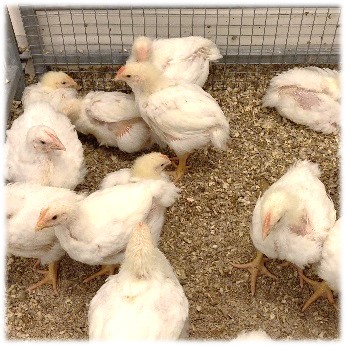



RVC receives funding to help reduce drug dependency in the poultry industry
Researchers at The Royal Veterinary College (RVC) will receive three new grants for Knowledge Exchange from Research England’s Connecting Capability Fund.Researchers at The Royal Veterinary College (RVC) will receive three new grants for Knowledge Exchange from Research England’s Connecting Capability Fund. These three grants, which total nearly £1 million, will be used to fund studies that combat infectious diseases and antibiotic resistance.
The awards come from The Bloomsbury SET (Science, Economics, Technology) – a £5 million research programme that seeks to deliver on the UK Government’s Industrial Strategy. The Bloomsbury SET, which is also led by the RVC, is comprised of the London School of Hygiene and Tropical Medicine (LSHTM), London School of Economics and Political Science (LSE), SOAS University of London and the London International Development Centre (LIDC). This consortium invests in projects with real world applications, including low-cost diagnostic tools, vaccines, and new mathematical models.
The three grants, which will benefit the UK and low-medium income countries, will support the following activities:
- A collaborative project which aims to reduce drug dependency within the poultry industry by developing a vaccine to protect against bacterial diseases such as Salmonella or Campylobacter. This project is led by Dr Virginia Marugan-Hernandez, Professor Fiona Tomley, Professor Damer Blake (from the RVC) and Dr Francisco Olmo (LSHTM), with support from MSD Animal Health;
- A project that addresses the global challenge of eradicating malaria by creating low-cost, rapid diagnostic tools to distinguish all six human malaria species. This work will be led Dr Martin Walker (from the RVC), Dr Susana Campino and Professor Taane Clark (both LSHTM), working with collaborators outside of The Bloomsbury SET; and
- An innovative ‘citizen science’ project to examine the role of urban and rural wildlife in antimicrobial resistance and environmental contamination, led by Professor Ayona Silva-Flectcher and Dr Tierney Kinnison (both from the RVC), working with Dr Simon Rofe (SOAS) and colleagues from the University of Peradeniya, Sri Lanka.
The Bloomsbury SET has also released funding for two other projects, which will be conducted by researchers at LSHTM and LSE. These projects will seek to address the global threat of tuberculosis through assessment of the impact of new vaccines in South Africa, India and China, as well as though evidence-led interventions.
The latest announcement brings the number of Bloomsbury SET projects to eleven, the consortium having distributed £3.1 million in funding since April 2018.
Dr Virginia Marugan-Hernandez, Research Fellow in Vaccinology at RVC, said:
“The supply of safe food is a growing concern in UK and world markets, and there are constant challenges to the sustainability of the poultry industry, such as the use of antibiotics. By developing an alternative to antibiotics to treat a highly common disease in chickens, this award is a fantastic opportunity for myself and Dr Olmo to improve food safety and public wellbeing.”
Dr Susana Campino, Associate Professor at LSHTM, said:
“Our project combines genomics, bioinformatics, and epidemiology to understand more about the biology of malaria parasites. We will generate and analyse a genomic dataset of over 700 samples from neglected parasite species. We will translate the resulting knowledge into a new tool for diagnosis that detects all six malaria species, with the long-term aim of eliminating this tragic disease.”
Dr Ray Kent, Director of Research Administration at the RVC, added:
“Through these new projects we are reaping the benefits of connecting the translational research capabilities of the four partner Colleges in The Bloomsbury SET. The projects offer excellent opportunities for the UK economy, as they accelerate the exchange of ideas and adoption of the latest research into new products, services and policies, worldwide.”











